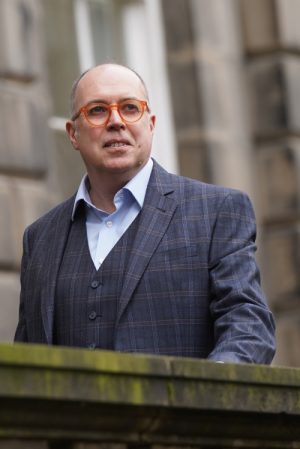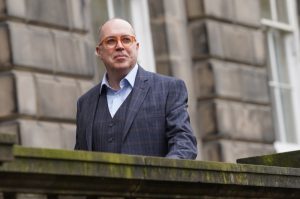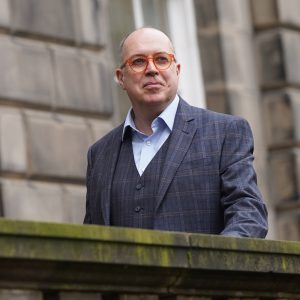
We spoke to founder, David Bowie about the company’s next steps and how the AI Accelerator has helped Eye to the Future achieve major milestones.

There are too many people in the world with sight loss that could have been prevented if it had been detected and addressed earlier – around a billion, according to the World Health Organisation. Add to that the economic burden of sight loss and the effect on people's quality of life, and we've got the perfect storm.
There are increasing waiting times, appointment backlogs, an ageing population, but also fewer eye care professionals. Our system needs efficiencies brought in so that care can be delivered in a better way and optometrists can see more patients more efficiently, before it's too late.
We’re providing a suite of software analytics tools that support clinicians in making quicker, more confident, and more consistent decisions. We're enhancing the clinicians, not replacing them. Our software uses images of the retina taken at a traditional optician or optometrist appointment and analyses change over time. Change is really important for progressive diseases such as glaucoma, which is the number one cause of irreversible blindness.
The background technology of Eye to the Future comes from over 20 years of collaborative research between the University of Edinburgh and University of Dundee, which looked at identifiers in the retina to pick up diseases, so it’s based on a strong foundation of academic research. We have also gone on to develop our own solid IP.
I have an international commercial background and have worked in the healthcare sector for over 30 years. I also have experience in successful local start-ups for 20 years including in radiology AI and have had issues with my own eyes over the years, so I am well placed to complement my academic co-founders.
I worked with the academic founders, the universities and Scottish Enterprise to fund early stage work in building our business around the technology, but most importantly around market need. That started at the end of 2019, so we're well into the journey at this point.
The foundation was there right at the beginning with our technology research. We've built a really strong, defensible IP on top of that, and by always talking to customers we’ve made sure the product is designed to meet real needs.
What the AI Accelerator programme has done is continued that deep interaction with the marketplace. Helping us understand how reimbursement works for our care services in the UK, US and further afield has been really important, as well as testing our pricing assumptions.
The programme gave us a real understanding and a common language as a team, for how we would build our proposition, our engagement with customers, how we tell the story and continue to grow the business around it. It made us up our game in particular areas, because even though I've been involved in startups and scale ups, each business is always at a different point in time, as far as economics and market conditions are concerned.
The AI Accelerator is an opportunity to take a step back from the day-to-day, reassess the business, retest assumptions and ask for new perspectives. It’s good to look at a broad spectrum of business areas in a really friendly, safe environment where you can ask questions you wouldn’t be able to in other settings. It's always useful to get other people's input and suggestions, because there may be ideas that can be translated from one industry sector to another.
Some of it has been one-on-one, some of it has been mentoring sessions, workshops, lectures. It's collaborative – we can sit with another co-founder and say, “What did you think of that?”, or “Have you applied that?”. That's worth its weight in gold. And likewise I could do the same for other businesses on the programme.
Improving eye care does real, tangible good for lots of people. There are inequalities in the world, but there are also technologies that can be applied to make a difference. That's my main driver.
Then, the excitement around our startup, building something from nothing – the team, the technology, the proposition, the commercial aspect. Having everybody working in the same direction; you can't beat it, especially with the phenomenal team we have.
Our next big milestone is completing development so we have a market-ready product for launch in UK. And then we will start to take our great Scottish-based technology to other parts of the world.
It's very exciting to now be working with customers to do further validation and building our user base. It's important for the sustainability of the business, but also to see our product rollout so we can benefit our users and their patients.

Want to learn more about Eye to the Future, click below to head to their website.